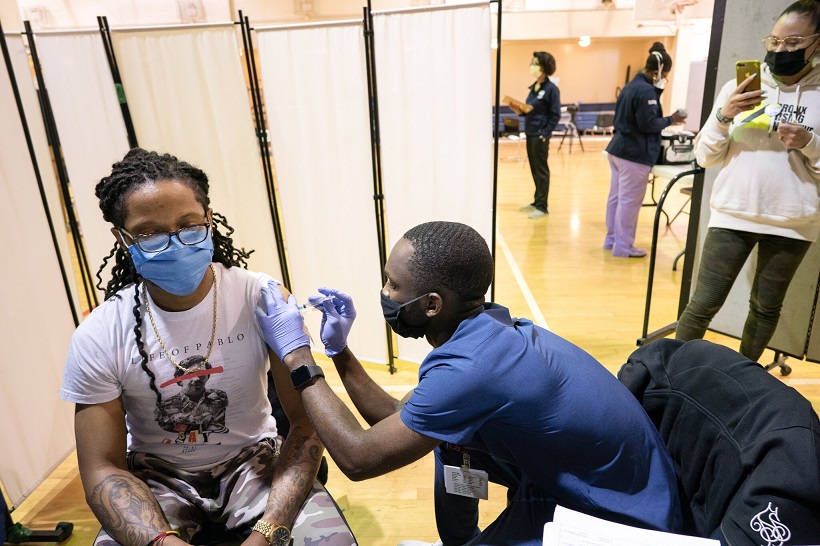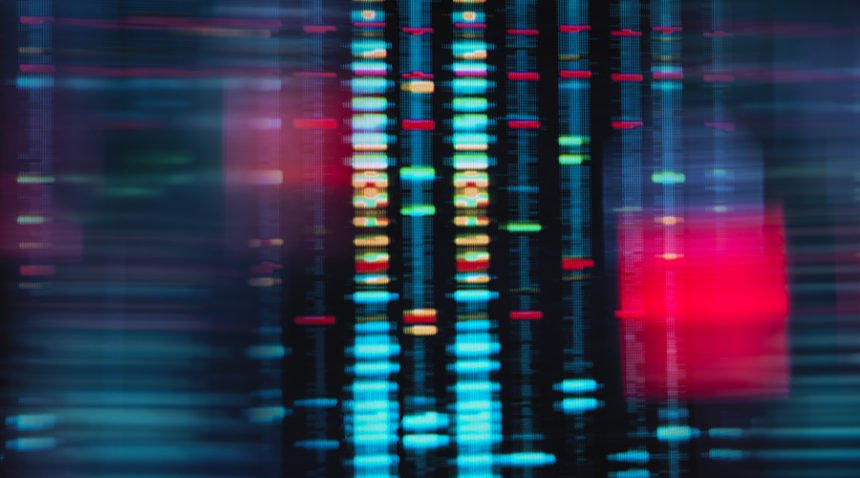Why You Should Get the Vaccine Even If You’ve Had Covid

As evidence mounts for the extraordinary effectiveness of all three vaccines approved for use in the US, new talking points are starting to emerge among those hesitant to get the shot. One of the more popular in recent days is that if you’ve already had Covid you don’t need the vaccine. It doesn’t appear that there was ever any actual science to support this claim, and in fact it’s demonstrably wrong — all the evidence points in the opposite direction. In this post I’ll take a brief walk through the latest studies showing the pronounced benefits of vaccine-mediated immunity over ‘natural’ immunity from infection.
First, a bit of terminology. ‘Seropositive‘ is simply when a blood test detects that you were previously infected with a particular pathogen, while ‘seronegative’ is when a blood test fails to show that you were infected. So for example, if you go to the doctor for a blood test and the test doesn’t detect any SARS-2 antibodies, you would be ‘seronegative’ for this virus.
Based on the research to date, there are at least two main reasons why those who’ve previously tested positive for Covid-19 should opt for the vaccine.
(1) Vaccinated people have higher antibody levels than those who’ve recovered from a prior infection. One of the earliest studies on this was published back in December, before new variants had turned up. The study, which looked exclusively at the Moderna vaccine, found that the number of IgG antibodies (the important ones that bind to the notorious spike protein on the surface of the virus) in participants who received both doses “far exceeded” that of seropositive participants.
It’s also been shown that seropositive individuals who receive at least one dose of an mRNA vaccine (i.e., Pfizer, Moderna) have roughly equivalent levels of antibodies to seronegative individuals who receive both doses, per preprints here and here. Essentially, one dose for previously infected people provides about the same level of (humoral) immunity as the full regimen does for uninfected people. While the reasons for this aren’t fully understood, it may be that since the immune system of a previously infected person will have already been trained to fight SARS-2, perhaps that first vaccine dose functions as a ‘booster’. Or, as the authors put it, “prior infection primes the immune response to the first dose of mRNA-based vaccine.”
What this suggests is that if you’ve had Covid, you might only need one dose of an mRNA vaccine to achieve the same level of antibody immunity as an uninfected person who gets both doses. What this also means, though, is that simply having had Covid in the past may not protect you from reinfection as much as getting even one vaccine dose. The vaccine tops up your antibody levels, which may have waned in the months following infection, and which could come in handy in the event of a future assault by the virus (or novel variants, which I cover below).
In short, a previously infected person who foregoes the vaccine altogether is at higher risk of coronavirus compared to a previously infected person who opts for a single mRNA dose, and to both infected and uninfected people who receive both mRNA doses.
(2) Seropositive individuals are less protected against emerging variants relative to fully vaccinated seronegative individuals. As Apoorva Mandavilli, writing for the Times, explains:
“In both new studies, neutralizing antibodies from vaccinated people were better at thwarting the virus than those from people who developed antibodies from being sick with Covid-19. Direct comparison of the two sets of antibodies offered a possible explanation [now published here]: Antibodies from vaccinated people are distributed across a broader range of parts of the virus, so no single mutation has a big impact on their effectiveness — making vaccines a better bet against variants than immunity from natural infection.
Dr. Bloom led the analysis comparing vaccine-induced antibodies with those produced by natural infection. He found that the most powerful antibodies bind to multiple sites in a key part of the virus. Even if a mutation affects the binding in one site in this region, antibodies that target the remaining sites would still be protective.
Antibodies induced by the vaccine cover many more sites across this region than those from natural infection — and so are less likely to be affected by a mutation in any one site.”
This finding is corroborated by an earlier study based on Pfizer’s vaccine that looked at two variants, the UK variant (Alpha) and the South African variant (Beta): Vaccine-induced immunity provides more robust heterotypic immunity than natural infection to emerging SARS-CoV-2 variants of concern. Key excerpt:
“The reduction in antibody neutralization was less marked in post-boost vaccine-induced than in naturally-induced immune responses and could be largely explained by the potency of the homotypic antibody response. However, after a single vaccination, which induced only modestly neutralizing homotypic antibody titres, neutralization against the VOCs was completely abrogated in the majority of vaccinees. These data indicate that VOCs may evade protective neutralising responses induced by prior infection, and to a lesser extent by immunization, particularly after a single vaccine, but the impact of the VOCs on T cell responses appears less marked. The results emphasize the need to generate high potency immune responses through vaccination in order to provide protection against these and other emergent variants.”
Some rather convoluted diction there but it’s saying that vaccine-derived immunity is better at producing neutralizing ABs compared to natural immunity from infection. And that people who only receive the initial dose are granted a markedly lower level of protection from extant variants compared to those who receive both doses as recommended. Up against the latest variants, the best offense is a good defense, which the vaccine provides in spades.
The takeaway is that the vaccines supply you with higher antibody counts in addition to a much broader antibody arsenal compared to natural immunity alone. One caveat is that all of the above studies comparing antibody response among the infected versus uninfected were based on the mRNA vaccines (Pfizer & Moderna). I’ve not seen similar studies on Johnson & Johnson’s, a single-dose, viral vector vaccine. But all the evidence we do have indicates that people who have had Covid are better off getting any of the available vaccines rather than none at all. Period.
While not an exhaustive list, hopefully this is helpful for those of you encountering this excuse out in the wild. Whether you’re up against genuine misunderstanding or entrenched anti-vaxx sentiment, it never hurts to have the facts in your back pocket.
Update: A new CDC study shows that seropositives who decline the vaccine are over twice as likely to be reinfected as seropositives who are fully vaccinated. This builds on numbers 1 and 2 above, further stacking the deck against the questionable line of reasoning addressed in this post. Excerpt:
“In today’s MMWR, a study of COVID-19 infections in Kentucky among people who were previously infected with SAR-CoV-2 shows that unvaccinated individuals are more than twice as likely to be reinfected with COVID-19 than those who were fully vaccinated after initially contracting the virus. These data further indicate that COVID-19 vaccines offer better protection than natural immunity alone and that vaccines, even after prior infection, help prevent reinfections.
The study of hundreds of Kentucky residents with previous infections through June 2021 found that those who were unvaccinated had 2.34 times the odds of reinfection compared with those who were fully vaccinated. The findings suggest that among people who have had COVID-19 previously, getting fully vaccinated provides additional protection against reinfection.”
The previous advice holds strong: get the vaccine — whether you were already infected, whether you’re not sure if you’ve been infected, or whether you know you haven’t been infected. It’s your best bet at mounting a superior defense against all circulating forms of the virus.
Further reading:
- Why you should get a COVID-19 vaccine – even if you’ve already had the coronavirus
- CORONAVIRUS MAY 2021—PART 13 HOW EFFECTIVE ARE THE VACCINES IN THE REAL WORLD?
- Vaccines Are Effective Against the New York Variant, Studies Find
- The Science of mRNA Vaccines
- New CDC Study: Vaccination Offers Higher Protection than Previous COVID-19 Infection
Feature image credit: James Estrin/The New York Times



Comments